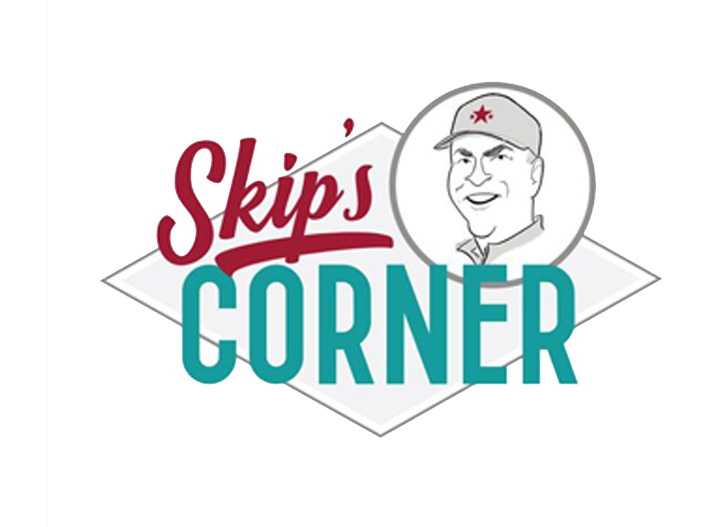
Nashville manager Newt Fisher was rounding out his prospects as early as January, signing players to fill the roster for the 1905 Southern Association season. In February, he announced that spring training would take place a little earlier than usual, and players should dust off their gloves and show up at Athletic Park by March 20.

He also let it be known through the local newspaper that he would do what it took to produce a good ball club and return Nashville to a championship as had been captured in 1901 and 1902.
“Manager Fisher will get rid of the dead material as soon as possible. Those who do not come up to expectations will be sold or farmed out. He will have need for more than fifteen players after the exhibition series…”[1]
The exhibition schedule included the New York Giants on March 29 and 30, Cincinnati Reds on April 3 and 4, and Boston Bean Eaters on April 11. Interspersed between the contests with big league clubs were games from the collegiate side: Vanderbilt, University of Nashville, and Cornell University. It was not unusual for the professionals to play against local college teams, and Nashville often turned to local colleges to play games when their own ballpark was flooded. This happened all too often when spring rains filled the Cumberland River which overflowed its banks.
On March 23 Vanderbilt and Nashville met at Athletic Park, but the pros were too much for the Commodores, beating the West Enders by a score of 10-0. That night rain fell and left a muddy ball field, but Nashville prevailed once again the next day, this time by a 5-4 score.
The University of Nashville Maroons were up next and were roughed up by Fisher’s team 8-0 on March 25, and with no games played on Sunday, the two teams met again on Monday March 27. The collegians were no match and were smacked 18-3. Meanwhile, at Vanderbilt’s Dudley Field, Cornell paid a visit and won over the Commodores, 10-6. The importance of the contest was not the score; the team from Ithaca, New York was coached by legendary Glenn Warner, who would go on to fame in college football and be known best by his nickname, “Pop”. It was his first year handling the baseball chores at Cornell. and he would last two seasons on the ball diamond before dedicating his efforts strictly to football.
Both Nashville and Cornell won their respective games on March 28, as the Fishermen shut out the Maroons 6-0, and Warner’s ball club whitewashed the Commodores 3-0.
Rain canceled the highly-anticipated game between Nashville and National League champion New York*, but a double header on March 30 resulted in two losses for the local team as the Giants won 13-2 and 4-0 in a five-inning game. There were 2,500 fans in the stands.
Starting for “Mugsy” McGraw in the opener was deaf-mute Luther “Dummy” Taylor, who was 21-15 in 1904; he was relieved by Christy Mathewson who had won 33 while losing 12 the previous season. The second game featured Joe “Iron Man” McGinnity, who led the league with a 1.61 ERA and in wins with 35, against only eight losses.
McGraw (1937), Mathewson (1936), McGinnity (1946), and catcher Roger Bresnahan (1945) are players from that Giants team who would be elected to the National Baseball Hall of Fame.

Another double header was scheduled for March 31, with Nashville taking on the Giants in the first game, losing 8-4, and New York playing Cornell in the second. Having pitched so few innings the day before, McGinnity was called against the collegians in the second game, and Mathewson also appeared in the 7-4 win over Warner’s team.
With the Giants leaving town after their second double header in two days, Cornell lingered for one last game in Athletic Park against Nashville. In a one-hour, 35-minute game, the pros won 4-3 in a hard-fought contest won by Nashville with a single run in the last inning.
After final exhibition games with Louisville and Toledo, Nashville will begin the season with high hopes riding on the shoulders of outfielder Frank Norcum, who will bat .300 and lead the league with 522 plate appearances, 157 hits, and 86 runs. But on July 7, Newt Fisher sells his Nashville baseball interests to a local syndicate and Mike Finn succeeds Fisher as team manager for the remained of the year. Nashville will finish in seventh place in the Southern Association standings with a dismal 47-88 season.
Capturing a second National League crown, McGraw’s Giants will win the World Series over the Philadelphia Athletics, four games to one.
After the team’s Nashville visit, “Pop” Warner would take his Cornell baseball club East before beginning the season. His 1905 ball club will finish the season with a 16-8 record.[2] After a 20-7 record in 1906, Warner will concentrate on football. His success will lead to his selection to the College Football Hall of Fame in 1951.
Nashville’s spring of 1905 brought five players or coaches named to respective Halls of Fame in later years. It was significant that one, Warner, would include the “Grand Old Game” in his coaching duties.
*At the urging of McGraw, New York team owner John Brush declined to play Boston in the 1904 World Series.[3]
Sources
Baseball-reference.com
Buffalo Sunday News
Nashville American
Newspapers.com
Sabr.org
Wright, Marshall D. (2002) The Southern Association in Baseball, 1885-1961. Jefferson, North Carolina: McFarland & Co., Inc.
Notes
[1] “Spring Training,” Nashville American, February 5, 1905, 6.
[2] Cornell University Baseball Records, http://cornellbigred.com/documents/2010/4/7/bsb_results.pdf?id=2847, retrieved March 27, 2018.
[3] Saccoman, John. “John T. Brush,” Sabr.org Bio-project, http://sabr.org/bioproj/person/a46ef165, retrieved March 27, 2018.
© 2019 by Skip Nipper. All Rights Reserved.

